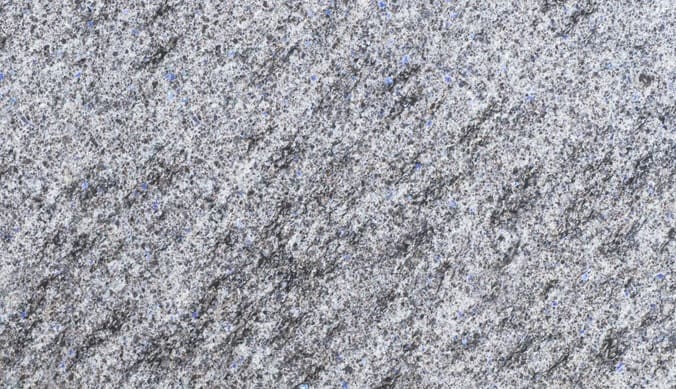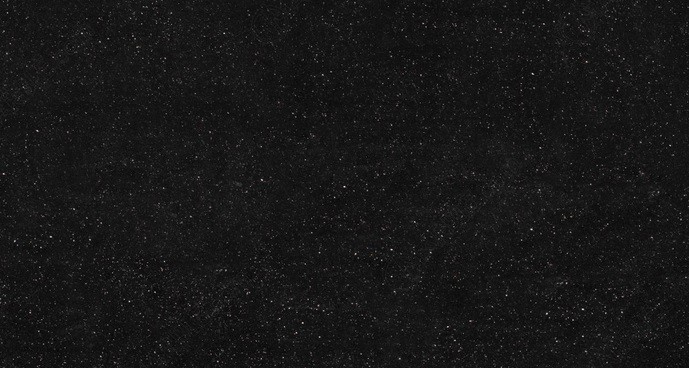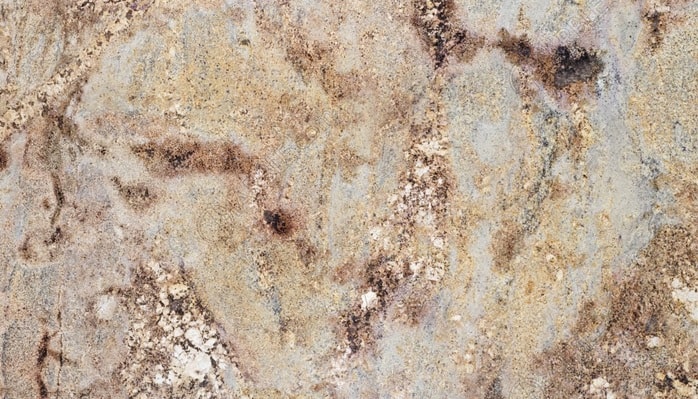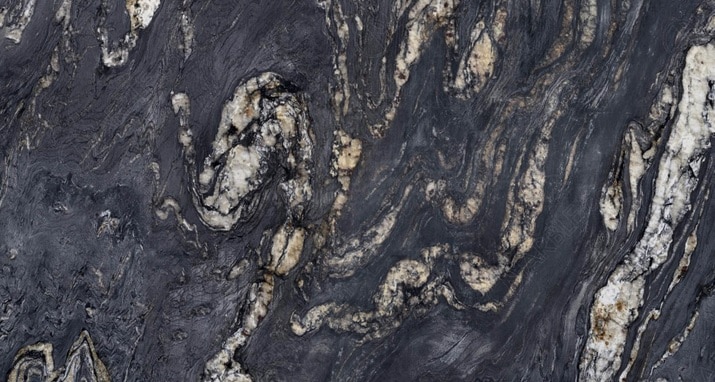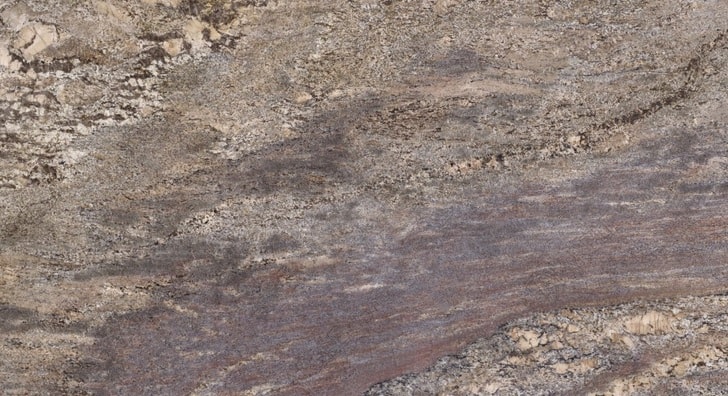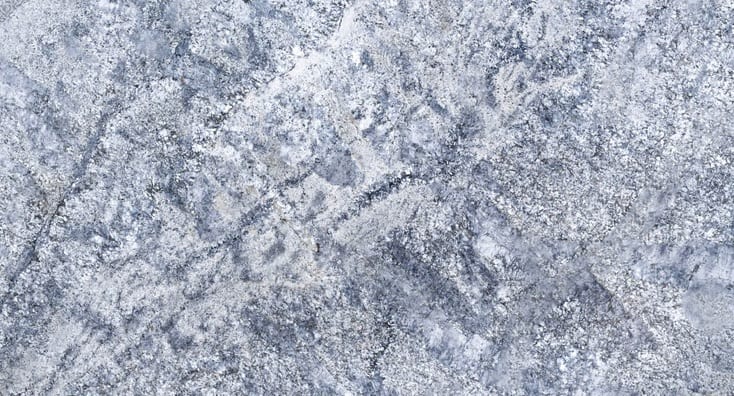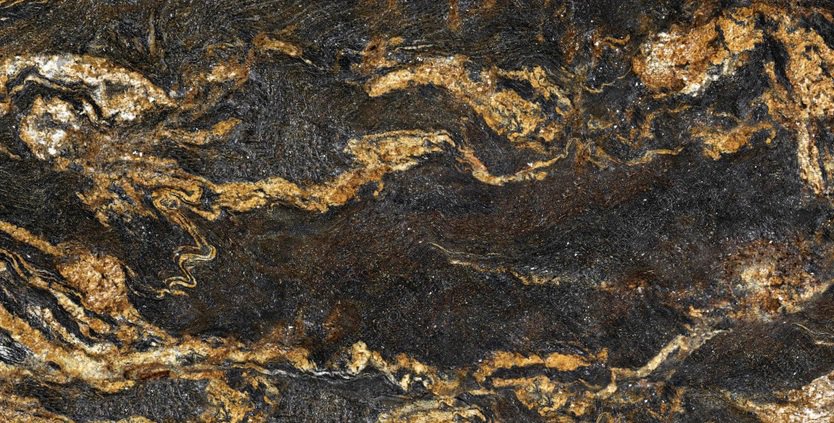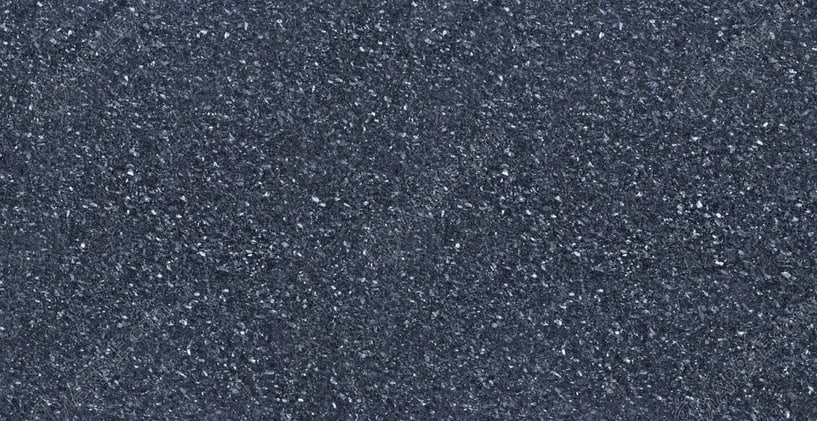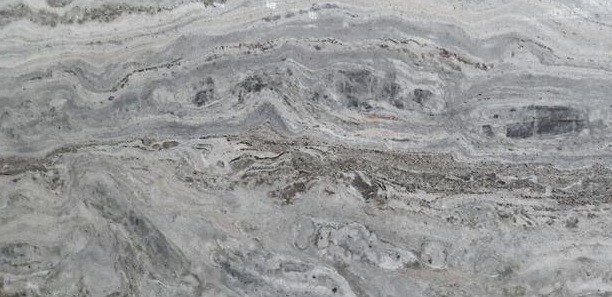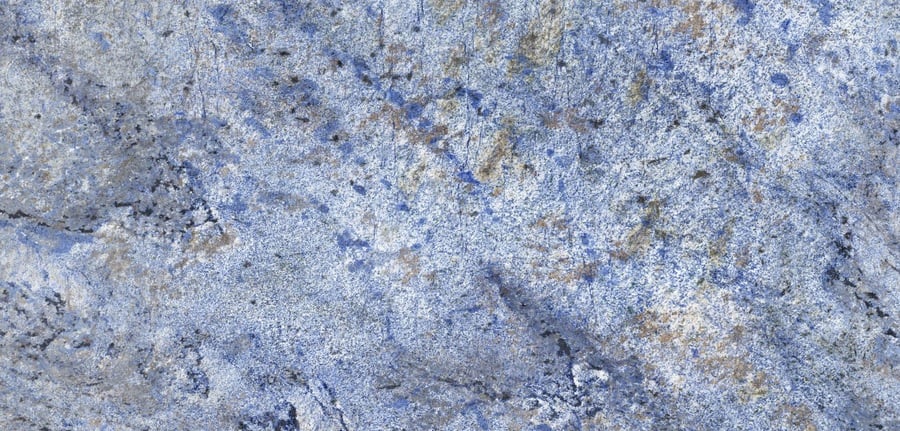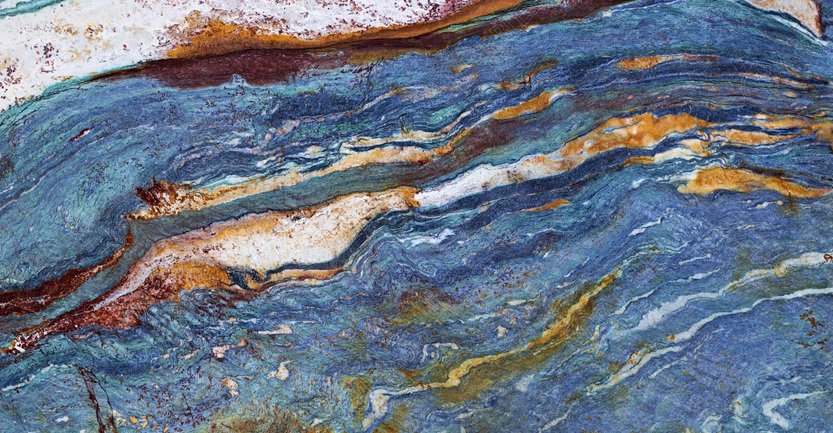Granite is one of the most popular building materials, especially in homes. Not only is granite durable, and fairly low maintenance, it comes in a wide array of beautiful colors. Whatever your tastes may be, there is a color of granite out there that suits your aesthetic. Of course, not all granite is created equal and some colors are more valuable and rarer than others. In general, the rarest and most expensive colors of granite are blues, followed by blacks and reds. Typically these colors are found in only one mine and appear in very small quantities. This list contains the most expensive and rarest colors of granite currently known to the world.
- Blue Eyes
- Black Galaxy
- Niagara Gold
- Titanium
- Crema Bordeaux
- Azul Aran
- Black Fusion
- Blue Pearl
- River Blue
- Blue Bahia
- Van Gogh
Country of Origin: Canada
Primary Colors: Blue, Gray, and Black

photo source: marble.com
Blue Eyes granite is named for the the brilliant specks of blue that sometimes appear on slabs. Primarily, Blue Eyes is a gray granite with black speckling. Blue Eyes granite comes from Ten Mile Bay Quarry, near the town of Nain along the Labrador coast of eastern Canada. It was first discovered in 1991 and has become an increasingly popular color choice.
Did you know?
Blue Eyes granite has numerous names, including Labrador Antique, Azul Eyes, Labrador Blue, Reflect Blue, or Ten Mile Bay granite.
Country of Origin: India
Primary Colors: Black

photo source: marble.com
Black Galaxy granite looks just like the night sky. This granite is mostly deep black with tiny specks of white and/or gold. Black Galaxy, which is also known as Nero Galaxy or Star Galaxy, originates from the Ongole area of South India. It is a very durable color of granite and because its so dark, it is very stain resistant. Black Galaxy is a fairly new color of granite and was only discovered in the late 1970s or early 1980s.
Did you know?
Black Galaxy granite is unique because it does not necessarily need to be sealed. It is such a dense granite that it doesn’t absorb much.
Country of Origin: Italy and South Africa
Primary Colors: Gold, Gray, Red, and Brown

photo source: marble.com
When you think of granite countertops, colors similar to Niagara Gold are probably what you picture in your mind. Niagara Gold is a brown granite with shades of gray, gold, beige, burgundy, and specks of black. This color of granite is perfect for counter tops, backsplashes, bathroom counters, and flooring.
Did you know?
Niagara Gold has two countries of origin, Italy and South Africa.
Country of Origin: Brazil
Primary Colors: Black, White, Gold, and Gray

photo source: marble.com
Titanium or Titanium Black granite is another expensive black granite. In general, Titanium granite features a deep black background with veins of white, gold, and gray. Sometimes, the background can be more gray due to the composition. Like all of the best granite, Titanium granite comes from Brazil.
Country of Origin: Brazil
Primary Colors: Purple, Red, Gold, Gray, Green, Blue, Beige, Brown, and Black

photo source: marble.com
Did you know?
Crema Bordeaux primarily comes from Espirito Santo, Brazil, which is in the southern region of the country.
Country of Origin: Spain
Primary Colors: Blue, Gray, and White

photo source: marble.com
Azul Aran comes from Spain is another granite that is in the blue color family. This granite has more of a blue-gray color with some specks of white and/or black. The Azul Aran quarry is located in northeastern Spain, near the French border.
Did you know?
Azul Aran granite is the commercial name for a blue-grey pegmatitic granite of the Carboniferous (Permian) period.
Country of Origin: Brazil
Primary Colors: Black, White, Gold, and Gray

photo source: marble.com
Did you know?
Black Fusion has many other names, including Fusion Granite, Fusion Black Granite, Taurus Black Granite, and Black Taurus Granite.
Country of Origin: Norway
Primary Colors: Blue and Black

photo source: marble.com
Blue Pearl granite is one of the more affordable high-end blue granite colors. It comes from Norway and typically costs $50 – $100, but certain slabs might be more expensive depending on the pattern of the Blue Pearl granite. The dark color and hard mineral composition of Blue Pearl granite ensure that it is highly stain resistant and will not discolor from heat unless it is exposed to it in excessive amounts.
Did you know?
The mineral composition of Blue Pearl granite is primarily larvikite and the darker black specks are pyroxene.
Country of Origin: Brazil
Primary Colors: Blue, Gray, and White

photo source: Precision Stone Designs
River Blue granite looks just like running river water, with light blues, whites, and grays. As part of the blue granite family, River Blue is pretty costly, with an average price of $70 – $100 per square foot. This color of granite is typically used in bathrooms, kitchens, and for flooring.
Did you know?
River Blue is also a popular color of quartzite and marble.
Country of Origin: Brazil
Primary Colors: Blue, Gray, White, Black, and Gold

photo source: marble.com
Blue Bahia is a strikingly beautiful blue granite that is often speckled with golds, grays, and whites. It is Van Gogh granite’s more affordable cousin, but it still comes with a hefty price tag. On average, Blue Bahia costs $120 – $200 per square foot. Despite the high price, Blue Bahia is an incredibly popular granite choice for those who can afford it. Because of its coloring, Blue Bahia is often picked for bathrooms, especially shower walls and floors and sinks.
Did you know?
The typical finish for Blue Bahia granite is standard polish because other textured finishes would distract from the granite’s natural beauty.
Country of Origin: Brazil
Primary Colors: Blue, Green, White, and Gold

photo source: marble.com
Did you know?
Van Gogh granite is also known as Blue Louise.

